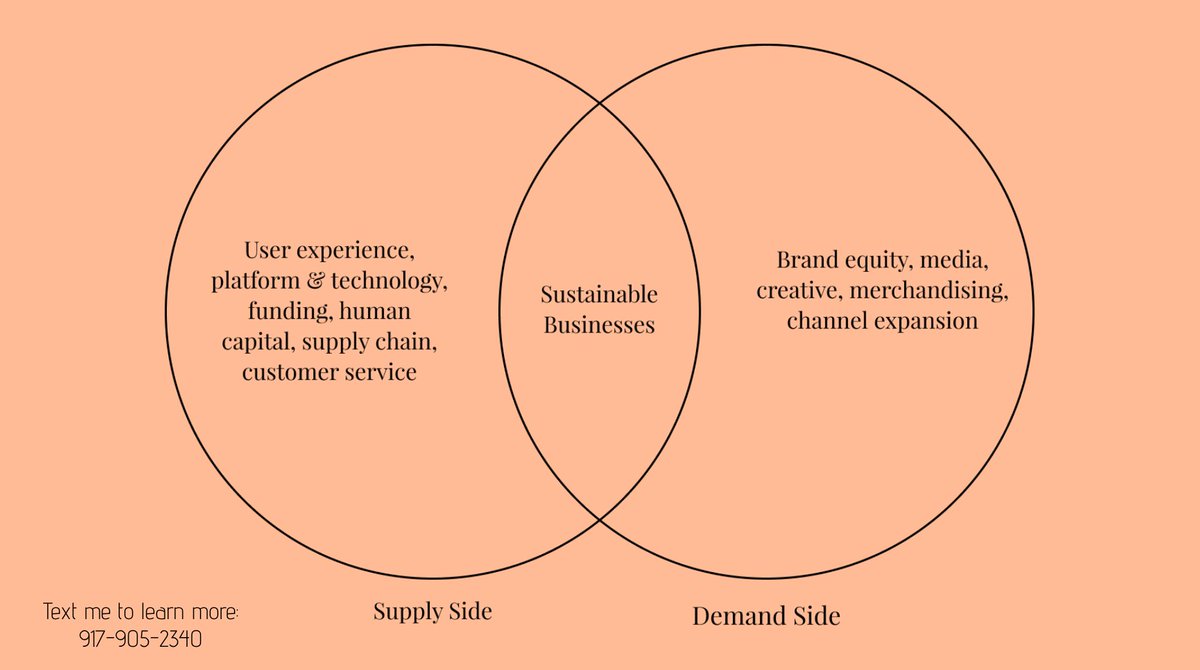
After spending >$47M on digital advertising for CPG brands, it's clear that the majority of brands still have no clue what they're doing.
Here are 3 things I believe will always be true in advertising, and that can help you build a better customer journey: 🧵
Here are 3 things I believe will always be true in advertising, and that can help you build a better customer journey: 🧵
1. Advertising is very similar to stretching a photo in Microsoft Word.
The more you stretch the image (read: spend with paid media), the blurrier it gets.
But, if you have a high-quality image (read: great brand equity), it doesn't get *as* blurry as you stretch.
The more you stretch the image (read: spend with paid media), the blurrier it gets.
But, if you have a high-quality image (read: great brand equity), it doesn't get *as* blurry as you stretch.
As you increase spend on paid media and focus on ROAS/Revenue, you want to re-invest into other functions of the business just as much:
• Customer service
• Supply chain optimization
• Content
• Product expansions/merchandising
• Customer service
• Supply chain optimization
• Content
• Product expansions/merchandising

2. You must treat your customer like Kim Kardashian walking a red carpet.
As the brand, you must have everything that she could ever need, at that moment, right there, ready for her.
As the brand, you must have everything that she could ever need, at that moment, right there, ready for her.
When you bring a new potential customer to your site, oftentimes without much context, you cannot expect them to learn about your brand, find + read reviews around your site, do their own research, and eventually buy your product.
Do the work for them.
Do the work for them.
https://twitter.com/mrsharma/status/1367301523710103557
3. You have to be extremely native to the platform you are distributing in.
Whether it is a billboard, a Facebook ad, a TV commercial, or a Tik Tok video, etc., you must understand the platform's experience, gestures, thumb movements, and context.
Whether it is a billboard, a Facebook ad, a TV commercial, or a Tik Tok video, etc., you must understand the platform's experience, gestures, thumb movements, and context.
You would never use a Snapchat from your brand as a billboard.
Similarly, you cannot expect a TV commercial to perform well as a Facebook ad and expect it to do well?
Similarly, you cannot expect a TV commercial to perform well as a Facebook ad and expect it to do well?
I send out insights, learnings, and thoughts like this in my weekly newsletter, every Sunday.
This entire thread was just the intro paragraph to the email. The rest was 🔥.
Join 15,000+ founders, marketers, investors, & operators for free: nik.co/subscribe
This entire thread was just the intro paragraph to the email. The rest was 🔥.
Join 15,000+ founders, marketers, investors, & operators for free: nik.co/subscribe
If you love threads,I also wrote a thread on how I conquered working with creators in a way that is a win-win-win (brand, influencer, customer) situation.
It'll also drop your acquisition cost by about 40%. Check it out here 👇
It'll also drop your acquisition cost by about 40%. Check it out here 👇
https://twitter.com/mrsharma/status/1377453531217682433
Lastly, for more awesome insights, learnings and tips, please follow me!!
➡️@mrsharma⬅️
✨ thank you ✨
➡️@mrsharma⬅️
✨ thank you ✨
• • •
Missing some Tweet in this thread? You can try to
force a refresh



